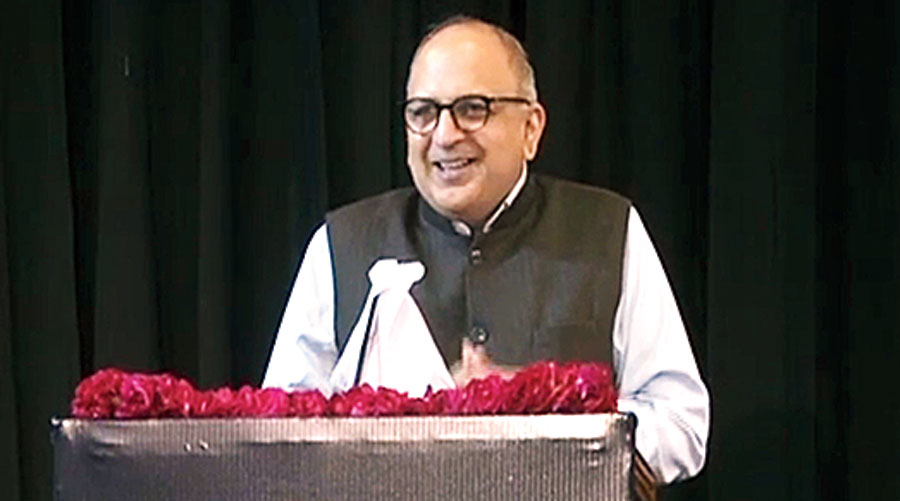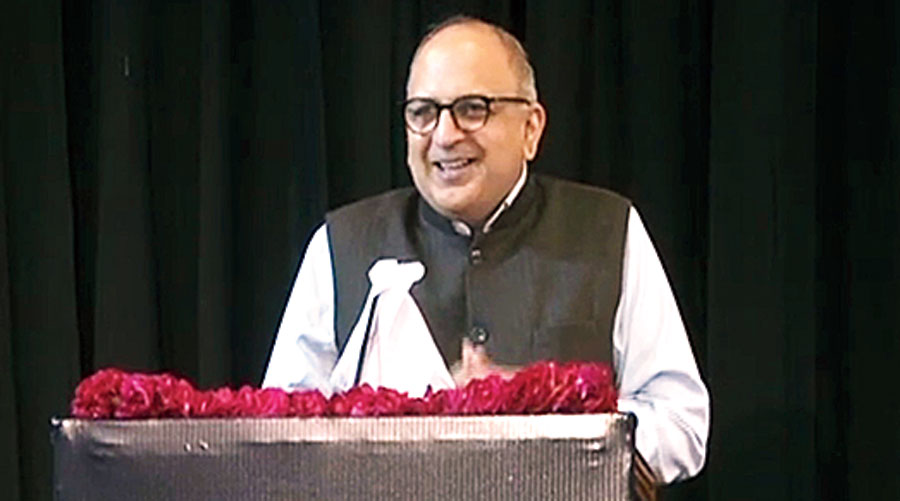Scholars from around the world have questioned Ashoka University’s role in the departure of political scientist Pratap Bhanu Mehta and at least one academic has urged the university to make public “whatever policies or pressures” that “forced” his resignation.
Mehta had resigned from Ashoka University on Monday while saying the varsity’s founders had made it clear to him he was a “political liability”.
More than 150 academics, including Canadian philosopher Charles Taylor, Cambridge political philosopher John Dunn, British-Ghanaian philosopher Kwame Anthony Appiah, Columbia University president Lee C. Bollinger and Oxford international relations professor Rosemary Foot have signed a statement that questions the role of Ashoka’s trustees and administrators in the matter.
“A prominent critic of the current Indian government and defender of academic freedom, he (Mehta) had become a target for his writings. It seems that Ashoka’s trustees, who should have treated defending him as their institutional duty, instead all but forced his resignation,” the statement said.
Columbia Sanskrit scholar Sheldon Pollock — who was a consultant for the founding of the university in 2013 — said in a statement: “With the resignation of Prof. Mehta, the university’s foremost scholar and public intellectual, my respect for the institution has been seriously tested.
“I have great admiration for the chancellor of the university, Rudrangshu Mukherjee, and for many of the trustees.”
Pollock said: “I call upon them to provide a full, public accounting of whatever policies or pressures brought about the circumstances that forced Prof. Mehta’s resignation, and to offer an unequivocal, public repudiation of them. If this is not done, and done soon, the stain on the university will be indelible, and the support of its most fervent admirers permanently lost.”
Former chief economic adviser Arvind Subramanian also quit the varsity as professor of economics this week in solidarity with Mehta, who is being seen as a victim of intolerance against his newspaper columns criticising the ruling BJP.
Class boycott
Late on Friday night, the university’s students called for a class boycott on Monday and Tuesday to press for Mehta’s return.
The Ashoka University Student Government released a charter of demands at midnight that sought:
“1. A public acknowledgement by the founders on Professor Mehta’s statement that he felt that he was a ‘political liability’ as well as assuring the Ashokan community that Professor Mehta will be given a public unconditional offer letter.
“2. An open meeting organised by the founders with the student body.
“3. The divesting of administrative powers and roles from founders of the university to the elected representatives of faculty, students and administration. We must create a body with both members of the faculty and student body to serve as a medium to discuss matters with the founders and the administration.”
Announcing the boycott of classes — currently being held mostly online — the statement added: “If these demands are not met by Tuesday, we will be organising a separate movement demanding that the vice-chancellor resign.”
Earlier this week, students had staged a sit-in against the exit of the two academics. A class boycott — for a day — had only happened once before in the university, during the protests against the new citizenship regime in 2019.
Vice-chancellor Malabika Sarkar, chancellor Mukherjee and the chairman of the board of trustees, Ashish Dhawan, have not responded to queries from this newspaper.
A student leader on the campus said the students were withholding their names in their statements to protect individuals from being harassed by the varsity administration.
“We are seeing a mobilisation of students like never before and that’s why we have pushed for greater control of academic stakeholders in the management, without which things won’t change,” the student leader said.
Talks are on for support from students’ unions in other varsities. The CPIML-Liberation’s All India Students Association as well as the SFI has issued a statement supporting the Ashoka students and teachers who are resisting the perceived crackdown on dissent.
In a letter to the students, English professor Jonathan Gil Harris has asked them to make sure that “anger doesn’t degenerate simply into a desire to punish” and that the founders are keen to meet the students.
He said: “But it’s clear now that there needs to be a complete firewall between founders and faculty on matters of hiring, dismissal, and judgements of (for example) the quality and content of a faculty’s writing.”
In 2016, a professor and two other staff members had resigned after signing a student petition calling for a plebiscite in Kashmir.
FCRA licence
A Union home ministry source confirmed that a licence to receive funds from abroad under the Foreign Contributions Regulatory Act, 2010, had been granted this month to a company called Reimagining Higher Education Foundation (RHEF), whose directors are among Ashoka University’s founders and which is setting up Plaksha University in Mohali, Punjab.
The timing of the clearance has prompted fingers to be raised at Ashoka, but there is nothing to suggest the licence was given out of turn.
On Saturday, The Economic Times reported that the RHEF had been upgraded from a “prior permission” grantee to an FCRA licensee, and that four of the firm’s five directors are part of the Ashoka leadership.
Two of them — Ashish Gupta, MD of the competitive exam coaching firm Jamboree Education, and Vineet Gupta, CEO of data analytics firm Benori Knowledge Solutions — are also trustees of Ashoka University. Neither responded to queries from this newspaper.
Former diplomat K.C. Singh tweeted: “Saw a report in one of the newspapers that #AshokaUniversity has been given FCRA clearance for setting up a new campus at Mohali, Punjab. If true, explains the whole @pbmehta episode as MHA gives that clearance.”
Former Union minister Ashwani Kumar said: “The trustees of the premier educational institution are clearly the principal villains, in not standing up to those who wanted Mehta to pay the price for his intellectual integrity…. This is the moment for academia and public intellectuals to collectively fight for their space as keepers of national conscience and to remind the powers that be that the power of their pen will not be captive to the lure of wealth or to the brute power of a muscular State.”












